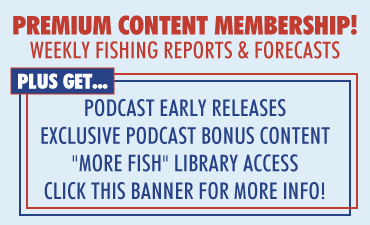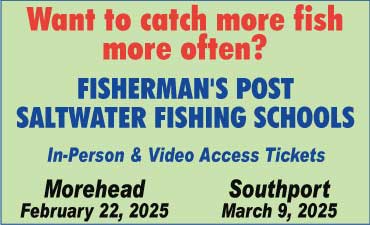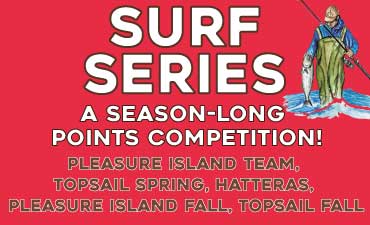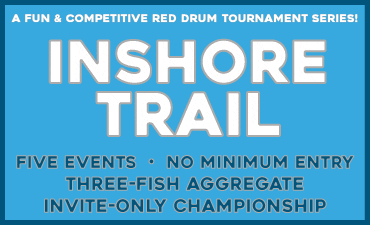The leading organizations representing recreational fishing and boating in the United States urged…
The leading organizations representing recreational fishing and boating in the United States urged the National Marine Fisheries Service (NMFS) to pause its proposed North Atlantic Right Whale Vessel Strike Reduction Rule, citing numerous significant flaws with the proposal. The proposed rule would broaden the current 10-knot (11.5 mph) speed restriction to include vessels 35 feet and larger (down from 65 feet); expand the go-slow zones from discrete calving areas to essentially the whole Atlantic Coast out as far as 90 miles, and extend these zone restrictions as long as seven months a year.
As America’s original conservationists, recreational anglers and boaters proactively support science-based efforts to conserve our marine ecosystems. In many cases, our industry has offered the constructive input that was ultimately used to develop management solutions that meet conservation goals and allow for the continued social and economic contributions our sector provides to the nation.
While this proposed rule has been in development for more than a year, NOAA’s Office of Protected Resources did not conduct any formal engagement with stakeholders. A pause would allow time for additional analysis of significant flaws within the rule and potential new alternatives to be developed in collaboration with the recreational fishing and boating industry.
Among the recreational fishing and boating community’s many concerns with the proposed rule, most notable are:
An analysis of NMFS data found approximately 5.1 million recreational fishing trips were taken in this region by vessels 35-65 feet in length since 2008. Assuming all five right whale strikes during that time were from recreational vessels, and that all these vessels were on fishing trips, the chance of a 35-65 foot recreational vessel striking a right whale during an offshore fishing trip is at most 0.000098%, or less than one-in-a-million. Attempting to predict risk on a one-in-a-million chance of a vessel strike is simply not an effective management strategy and highlights the futility of expanding the Seasonal Speed Zones (SSZs) to address such a small possibility of vessel strike interactions.
NMFS is using unrepresentative whale density values in their risk modelling, thereby creating a significant bias that may overestimate risk to whales from small vessel strikes. NMFS’ own technical memo states, “The high densities predicted along the mid-Atlantic may not be realistic.”
The model assumes 10-meter draft depth criteria when calculating vessel strike risk. However, recreational vessels in this size class rarely have a static draft that exceeds 2 meters. This also creates bias that may overestimate risk to whales from small vessel strikes.
NMFS underestimates the number of recreational vessels that will be impacted by the proposed rule at 9,200 vessels. However, based on 2021 vessel registration data analyzed by Southwick Associates, there were more than 63,000 registered recreational saltwater vessels measuring 35-65 feet in states across the proposed SSZs.
NMFS estimates the positive economic output from whale watching in the northeast at $95.1 million. In contrast, NMFS estimates $46.2 million in negative impacts for all vessel size classes and regions combined. It is difficult to understand how the economic benefits of whale watching operations in the northeast exceeds the proposed rule’s economic harm to all recreational vessels.
Enforcement of the proposed rule using Automatic Identification Systems (AIS) would be impractical and could lead to significant human safety risk. AIS is mandatory for certain vessels over 65 feet to improve the navigational safety of the vessel and other vessels operating in the area. AIS is not required on recreational vessels 35 – 65 feet although many boat owners voluntarily carry and operate AIS for the added safety-at-sea benefits. It is a very real concern that operators of boats less than 65 feet may decide to turn off their AIS systems in fear of triggering a speed restriction enforcement action. This would have the unfortunate consequence of reducing navigational safety, boater safety and hampering efforts during search-and-rescue operations.
Vessel speed is a significant safety feature on a recreational boat. Most recreational boats lack high displacement hull design that often provides ocean-going and commercial vessel stability and the ability to operate safely in significant sea states. The 10-knot speed limit would force recreational boaters to operate in conditions that would compromise safety of the passengers and vessel.
The organizations believe more exploration of technology that can deliver real-time monitoring of individual right whales is needed. It is feasible to gather real-time location information on a significant portion of the right whale population and disseminate information to mariners and other vessel operators, which would apply empirically-based, targeted precaution instead of excessively severe measures that do not accurately reflect actual risk nor can be adequately enforced. Developing ways to distribute this information to vessel operators will only occur through direct engagement with the industry and fishing and boating organizations.
As part of pausing this rule, the organizations are calling on NMFS to work with the recreational fishing and boating community on more scientifically justifiable management solutions that are less severe and more effective options to protect right whales. Click here for the organizations’ formal comment letter.
The coalition of groups calling for NMFS to pause the Proposed North Atlantic Right Whale Vessel Strike Reduction Rule includes American Sportfishing Association, Boat Owners Association of the United States, Bonefish and Tarpon Trust, Center for Sportfishing Policy, Coastal Conservation Association, Congressional Sportsmen’s Foundation, Guy Harvey Ocean Foundation, International Game Fish Association, Marine Retailers Association of the Americas, National Marine Manufacturers Association, Recreational Fishing Alliance and Theodore Roosevelt Conservation Partnership.





